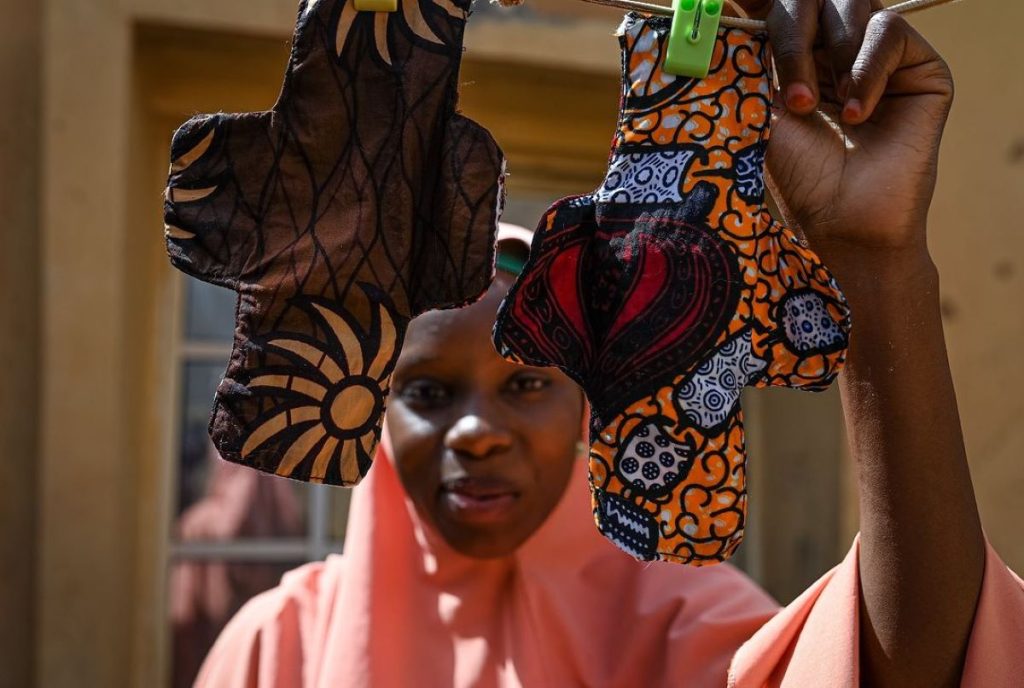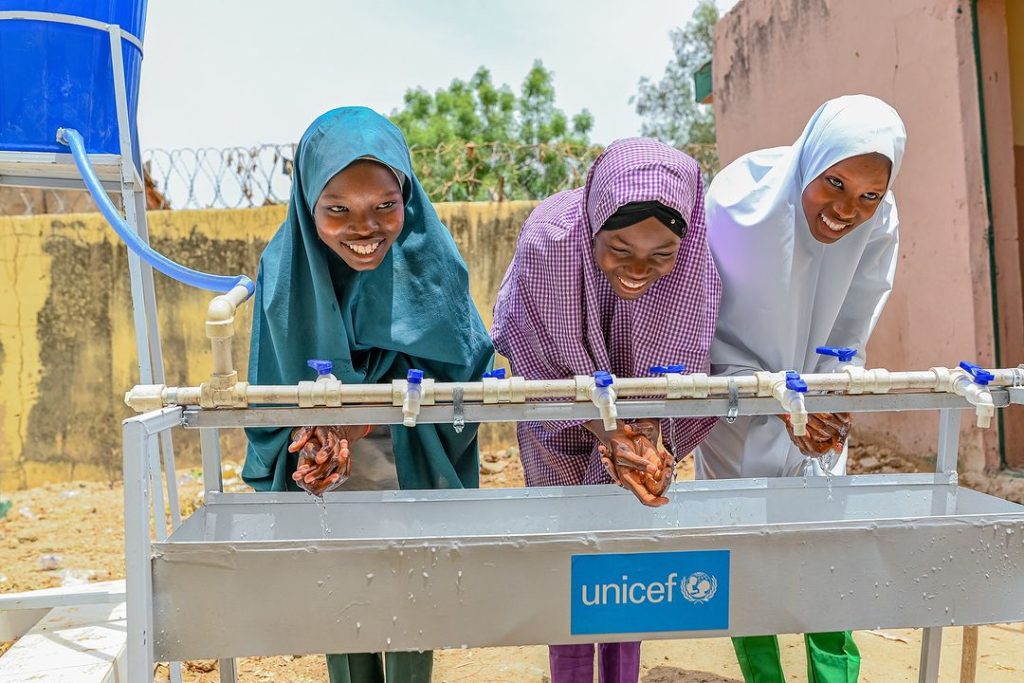The United Nations Children’s Fund (UNICEF) has been training women and girls in Borno, Adamawa, and Yobe states on some basic menstrual hygiene skills, which include how to produce their menstrual pads and soaps.
This training aims to promote safe and dignified menstrual health management, empower women and girls to break the stigma surrounding menstruation, and articulate their needs and challenges.
During a media event in Maiduguri for Menstrual Hygiene Day 2024, UNICEF Water, Sanitation, and Hygiene (WASH) Manager Mamita Bora Thakkar revealed that 93 schools and 330 girls have been trained under UNICEF’s WASH programme.
This initiative also addresses the additional challenges faced by women and girls with disabilities and the limited access to menstrual materials during emergencies.

Thakkar urged collective action to improve menstrual hygiene, which affects health, education, and dignity to help women and girls focus on their ambitions and responsibilities.
“Girls and women with disabilities face additional challenges in maintaining good menstrual hygiene, and in times of emergency, access to menstrual materials is often limited.
“By supporting safe menstrual health and hygiene management, we can empower girls and women to focus on their ambitions and responsibilities and promote their health, education, and dignity. Let’s break the silence and take action for menstrual hygiene!

“UNICEF’s initiative is a call to action, urging governments, communities, and individuals to prioritise menstrual health and hygiene. By doing so, we can ensure that women and girls can reach their full potential, free from the burdens of stigma and shame.
“It’s time to break the silence and take action – menstrual health matters,” said Thakkar.
The initiative further serves as a call to action for governments, communities, and individuals to break the silence and take meaningful steps towards ensuring menstrual health and hygiene for all women and girls.


